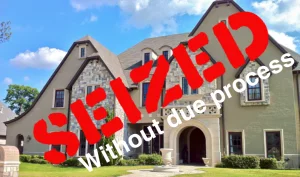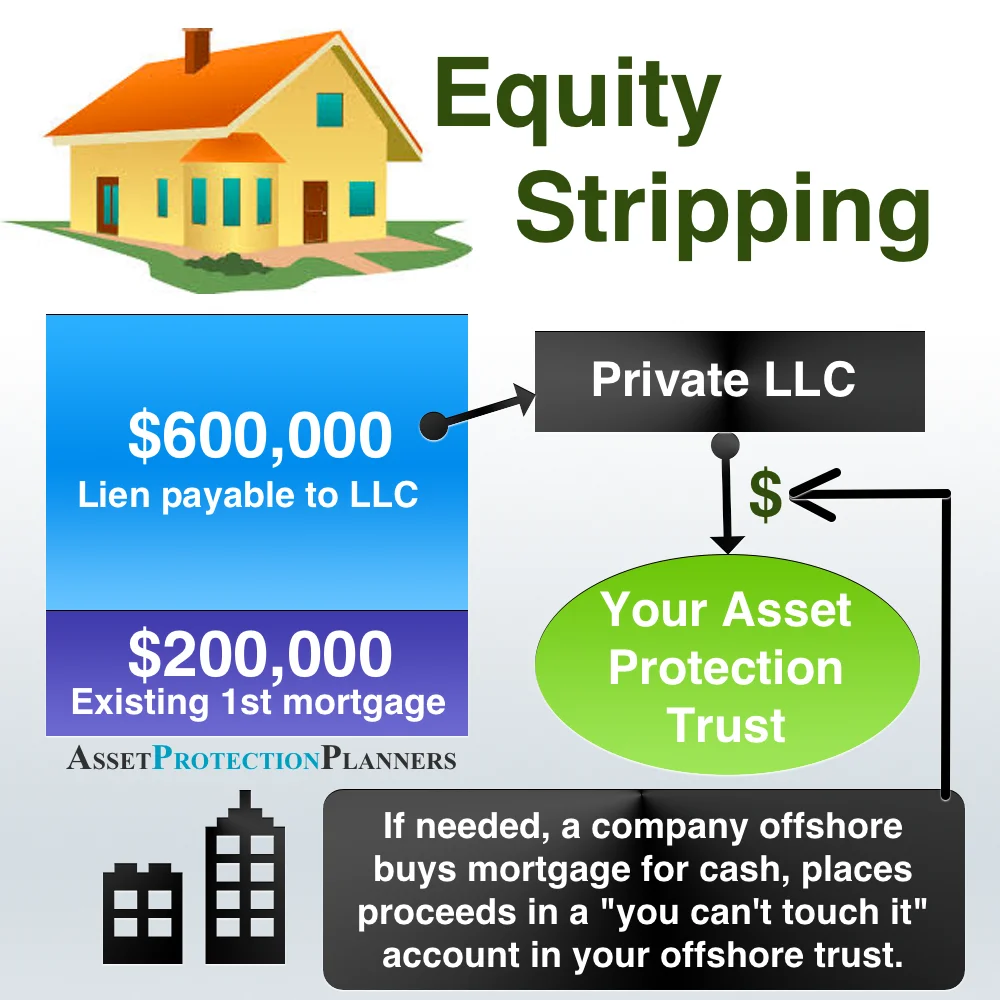As a real estate investor, you’ve likely spent considerable time and effort acquiring and managing your properties. Having done so, it only makes sense that you want to keep these assets safe from financial threats like lawsuits.
Fortunately, asset protection for investment properties is a well-established field of wealth defense. If you work with a group of capable asset protection professionals, there are plenty of ways you can defend your wealth. In this article, we’ll explain some of the main methods of asset protection for real estate investors:
- Lawsuits – The Number One Threat to Investment Properties
- Methods of Real Estate Asset Protection for Investment Properties
Lawsuits – The Number One Threat to Investment Properties
Lawsuits are the most common method used to seize property from real estate investors. Tenants sue their landlords for all manner of reasons, and there are plenty of contingency-fee lawyers who goad people into filing lawsuits. To make things worse, public sentiment toward landlords isn’t favorable, and plenty of places are capitalizing on these feelings by selling books and writing articles detailing how to sue landlords.
Given how dangerous today’s legal environment is for property owners, asset protection for real estate investors is more important than ever. Thankfully, we know plenty of ways to keep your hard-earned wealth safe from lawsuits and other legal threats.

Methods of Real Estate Asset Protection for Investment Properties
To defend against lawsuits and other threats, we utilize a variety of legal and financial structures. Some of the main tools used to provide asset protection for real estate investors include:
- Land Trusts
- Equity Stripping
- Wrap-Around Mortgages/All-Inclusive Trust Deeds
Land Trusts
You never know when a contingent-fee lawyer will start sniffing around for your assets. Thus, privacy of ownership provides a protective layer around real estate. To create the privacy you need to defend your real estate, we use land trusts.
Titling property to a trust keeps an individual’s name from public title records. As a result, it enhances lawsuit deterrence for real estate owners and investors. When a lawyer starts digging around for assets and can’t connect your name to the properties you own, they’ll often give up the search and look for easier targets.
If the idea of transferring a mortgaged investment property to another legal tool causes any concern, know that there’s no reason to be nervous. The Garn St. Germain Depository Institutions Act of 1982 prevents banks from invoking the due-on-sale clause. When you transfer a mortgaged property to a land trust, a bank cannot call the loan due. That applies to properties of one to four dwelling units.

Limited Liability Companies (LLCs)
Keeping your ownership of investment properties private is good, but legally separating yourself from the liabilities incurred by these properties is even better. To fully protect yourself from personal liability, you should own your property via a limited liability company (LLC). For the best of both worlds—privacy and protection—you make an LLC the beneficiary of each land trust.
As a business entity, LLCs are a separate legal person that can own property, open a bank account, and pay taxes, among other things. This separate legal person comes with limited liability for members or owners of the business. This is important because it prevents lawsuits against the LLC from affecting your personal accounts, and vice versa.
Additionally, there are legal provisions that help prevent judgment creditors from seizing LLC membership interest to satisfy a judgment. This is unlike shares of corporate stock, which a creditor can seize. Moreover, a single-member or multi-member LLC is granted flow-through taxation by default. That means that tax deductions flow through the company to its members. Plus, rental real estate is not generally subject to the 12.4% social security tax or the 2.9% Medicare tax. As a result, these tax benefits also flow through the company.
When protecting real estate using LLCs, separating properties from one another is an important asset protection strategy. When owning multiple properties through a single entity, liability from one property could jeopardize the others held by the same company. If a property has more than a quarter million dollars of equity (depending on an individual’s comfort level), it warrants its own business entity. Creating distinct LLCs for each property limits the amount of equity at risk at any given time. One can own several properties with low equity value with a single LLC. However, a property with greater equity, especially an active rental property that generates positive passive income, should be encumbered in its own business entity.
We also suggest splitting up properties on a cost/benefit basis. When in doubt, funding and managing each legal vehicle separately is a sound method of asset protection for investment properties. Placing each property in its own LLC will strengthen the legal separation of the entity from your personal effects. However, you must make sure that the way you use the LLC reflects its status as a business entity. Put simply, don’t mix your personal accounting and business accounting, and never treat the funds in your LLC as personal spending money. For example, don’t pay your personal grocery bill with your LLC debit card. If you do, a lawyer can argue that the LLC is invalid and start plundering your personal assets on top of any LLC holdings.
Equity Stripping
The final step in protecting real estate investment assets from lawsuits is to guard the equity. We do this by recording a home equity line of credit mortgage against each of your properties. This mortgage is payable to a separate LLC that you own privately. We typically establish such an LLC internationally for maximum privacy and protection.
In turn, we also establish an offshore asset protection trust that owns the LLC and adds another layer of legal separation between you and your property’s equity. If needed, we can arrange for a third-party lender to acquire the mortgage(s) and place the proceeds in your offshore trust. The protections afforded by this technique are so powerful that even if you lose a lawsuit in your home country, the plaintiff won’t be able to lay claim to the equity in your investment properties.
As a bonus, you can also use your trust-held LLC to protect other asset types. For example, liquid assets, bank accounts, stock portfolios, and even valuable collections can be transferred to the LLC or encumbered where they’ll be kept safe from creditors.
We typically establish the asset protection trust in the Cook Islands because of its sound case law history. Domestic trusts aren’t well suited to this strategy, as they are under the jurisdiction of domestic judges. If the trustee company resides offshore, it is not subject to U.S. court orders. So, if you are sued and lose the case, your trustee can place your property’s equity into an account that is beyond the reach of domestic judges.
One thing to keep in mind when utilizing equity stripping as a method of asset protection for investment properties is this: If the initial lien is payable to your own LLC, it can be challenged. So, get a third-party lender involved early in the game. They can strip the equity, and then you can immediately use the cash generated from the loan to place in your offshore trust. Fortunately, once your legal troubles subside, you will have access to those liquid funds to pay off the mortgage.

Wrap-Around Mortgages / All-Inclusive Trust Deeds
Instead of selling properties for cash, some people sell properties and retain mortgages on them. To do this, the seller transfers the title to the new buyer. The buyer then signs a promissory note payable to the seller. The seller, in turn, secures the promissory note with a mortgage or deed of trust recorded against the property. Some states use mortgages, and some use deeds of trust to secure the note. In either case, the new buyer makes monthly payments to the seller.
So, how do you protect private mortgages and deeds of trust? We do so by recording a wrap-around mortgage or all-inclusive trust deed (AITD) against the property. You record such a document in the county recorder’s office (or its equivalent) in the county where the property is located. This type of mortgage wraps around any other pre-existing mortgages on the property. Therefore, the wrap-around mortgage or all-inclusive trust deed consumes some or all of the remaining equity in the property, including the underlying mortgage. Naturally, you will reveal this in writing to the buyer.
Protect Your Real Estate Investments with Help from Asset Protection Planners
In summary, real estate asset protection for investment properties is a slight modification of a personal asset protection strategy. By recording your property ownership through land trusts and building distinct LLCs for each property, you obscure your ownership of your properties and put up liability barriers that can deter even the most persistent lawyers.
Of course, these strategies only work when they’re properly designed by experienced wealth defense professionals. Fortunately, the team at Asset Protection Planners has spent decades crafting strategies that keep investment properties safe from lawyers, tenants, creditors, and countless other financial threats.
If you’re ready to start protecting your assets and stop worrying about lawsuits, you’ve come to the right place! Fill out the form below to schedule a free consultation with one of our team members.


